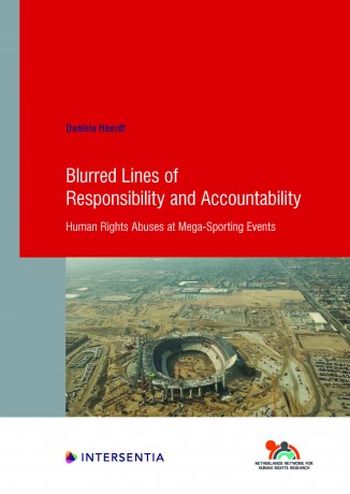We are now closed for the Christmas and New Year period, returning on Monday 5th January 2026. Orders placed during this time will be processed upon our return on 5th January.

Mega-sporting events (MSEs), like the FIFA World Cup or the Olympic and Paralympic Games, are prestigious international events that attract attention in every part of the world. In the last two decades, it became increasingly clear that such events can lead to adverse human rights implications. Notable examples include cases of forced evictions of local communities, violent repressions of protests around MSE venues, and the exploitation of both migrant and non-migrant workers on event-related construction sites.
This book discusses how delivering an MSE can impact a whole range of human rights, highlighting the challenges in dealing with cases of MSE-related human rights abuses and establishing legal responsibility. More specifically, it analyses the shortcomings of international human rights law and international law of responsibility in dealing with the complex governance system of MSEs, which is based on the involvement of a mix of national, international, private and public actors and blurs the lines of responsibility and accountability. As a result, the identification of responsible actors, the establishment of their responsibility, and the access to remedies for those affected are significantly complicated. To address these challenges, this book proposes a shared responsibility approach to the cases at hand, suggesting that actors involved in MSE delivery would share legal responsibility to the extent that they made a relevant contribution to an outcome that presents a human rights violation, and explores how this approach can work in theory and practice.